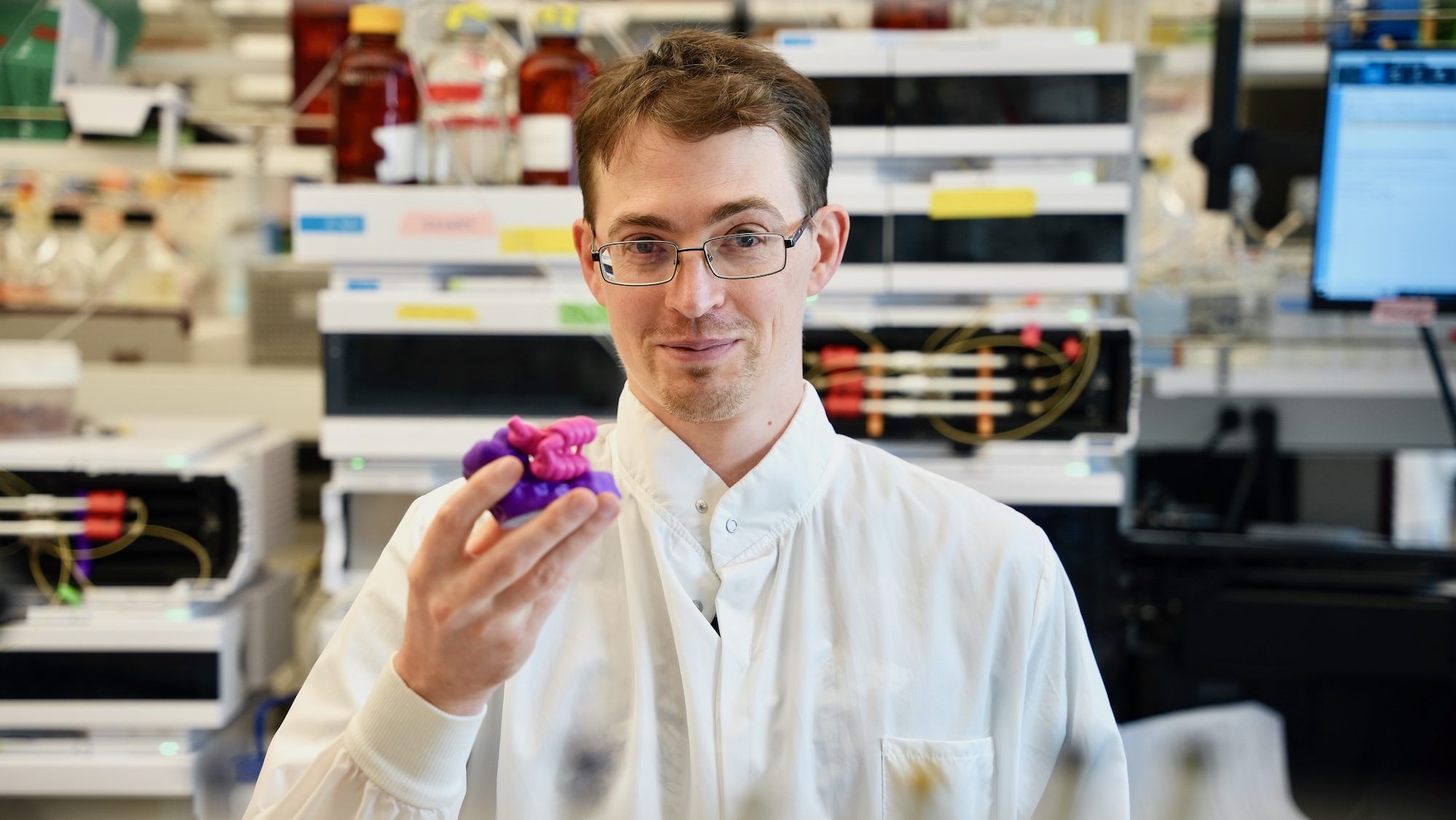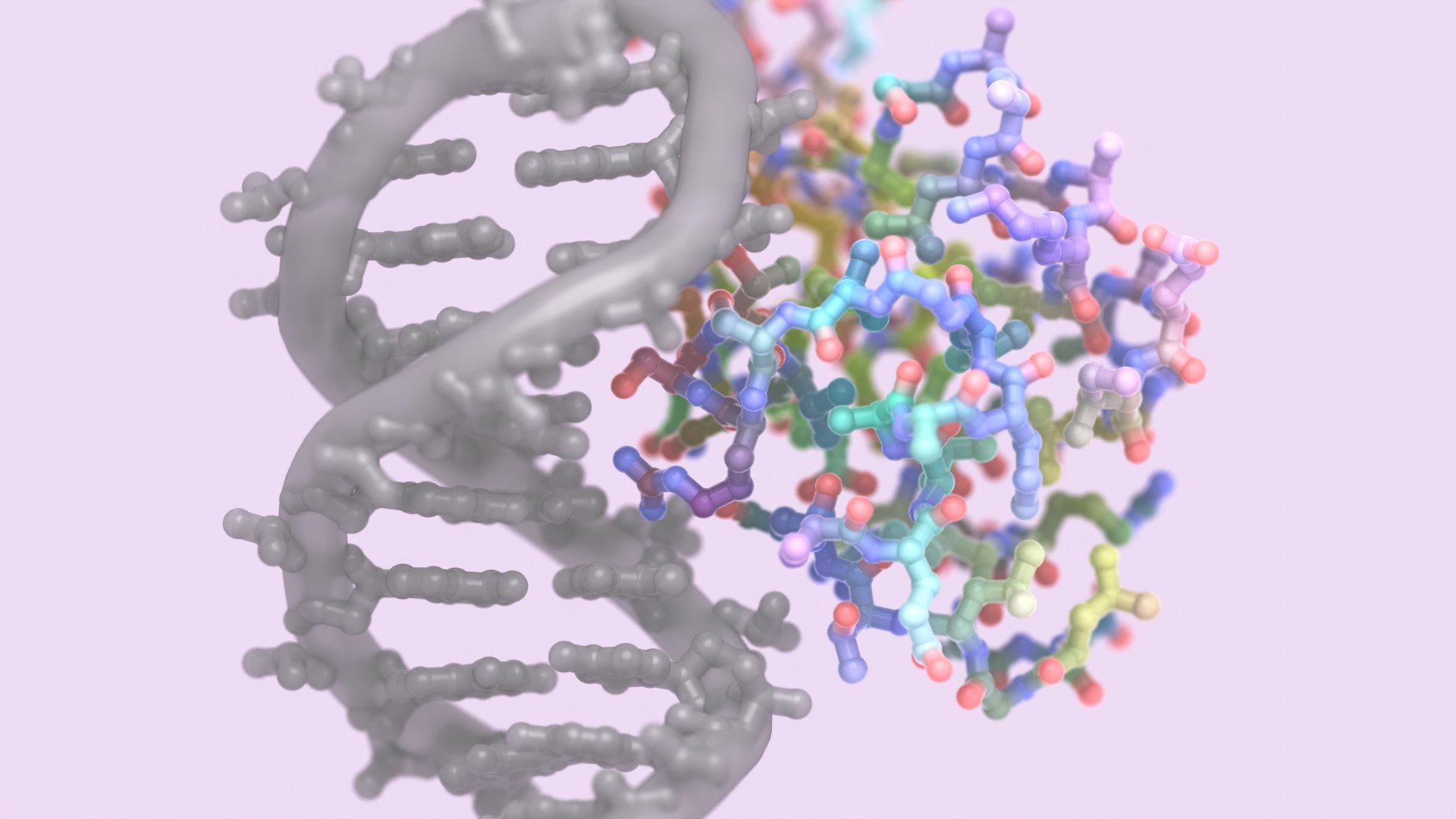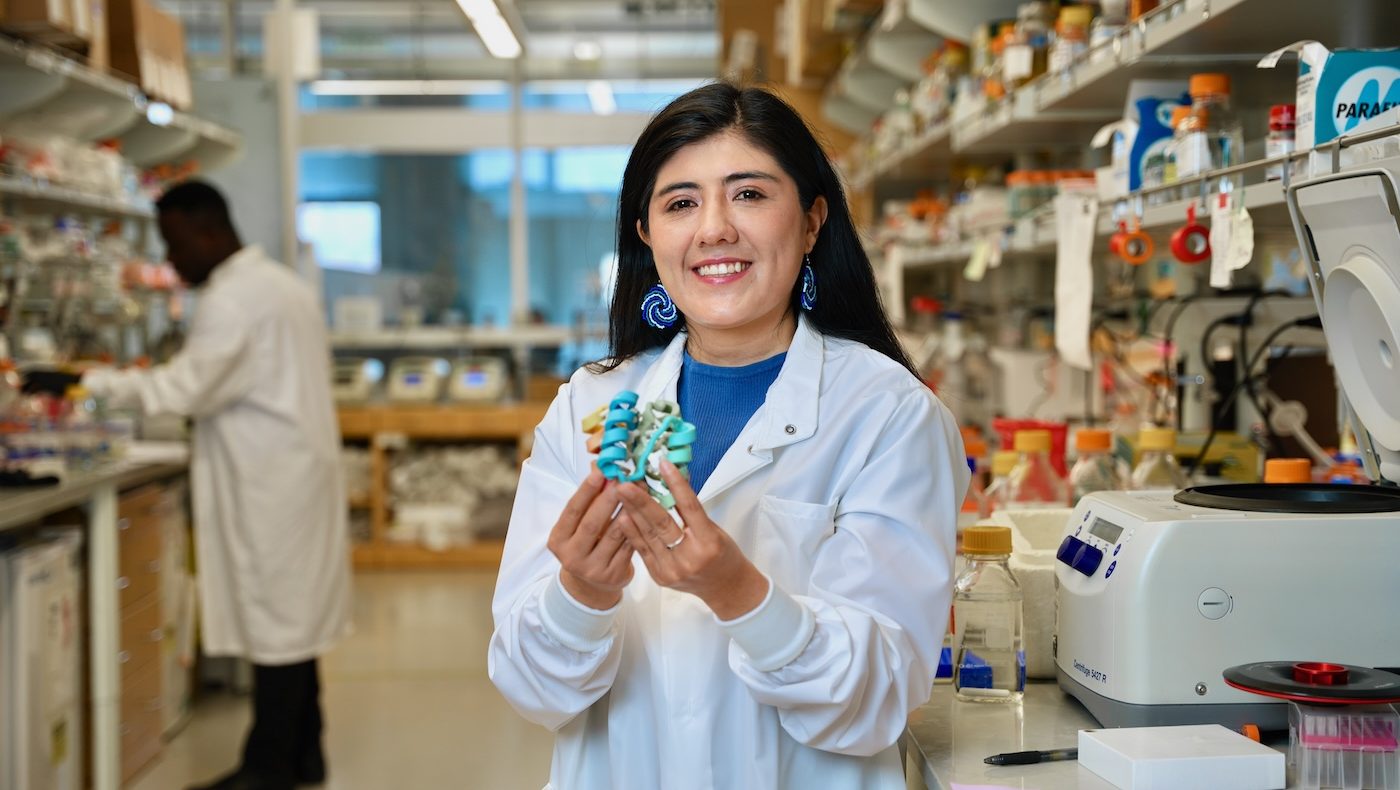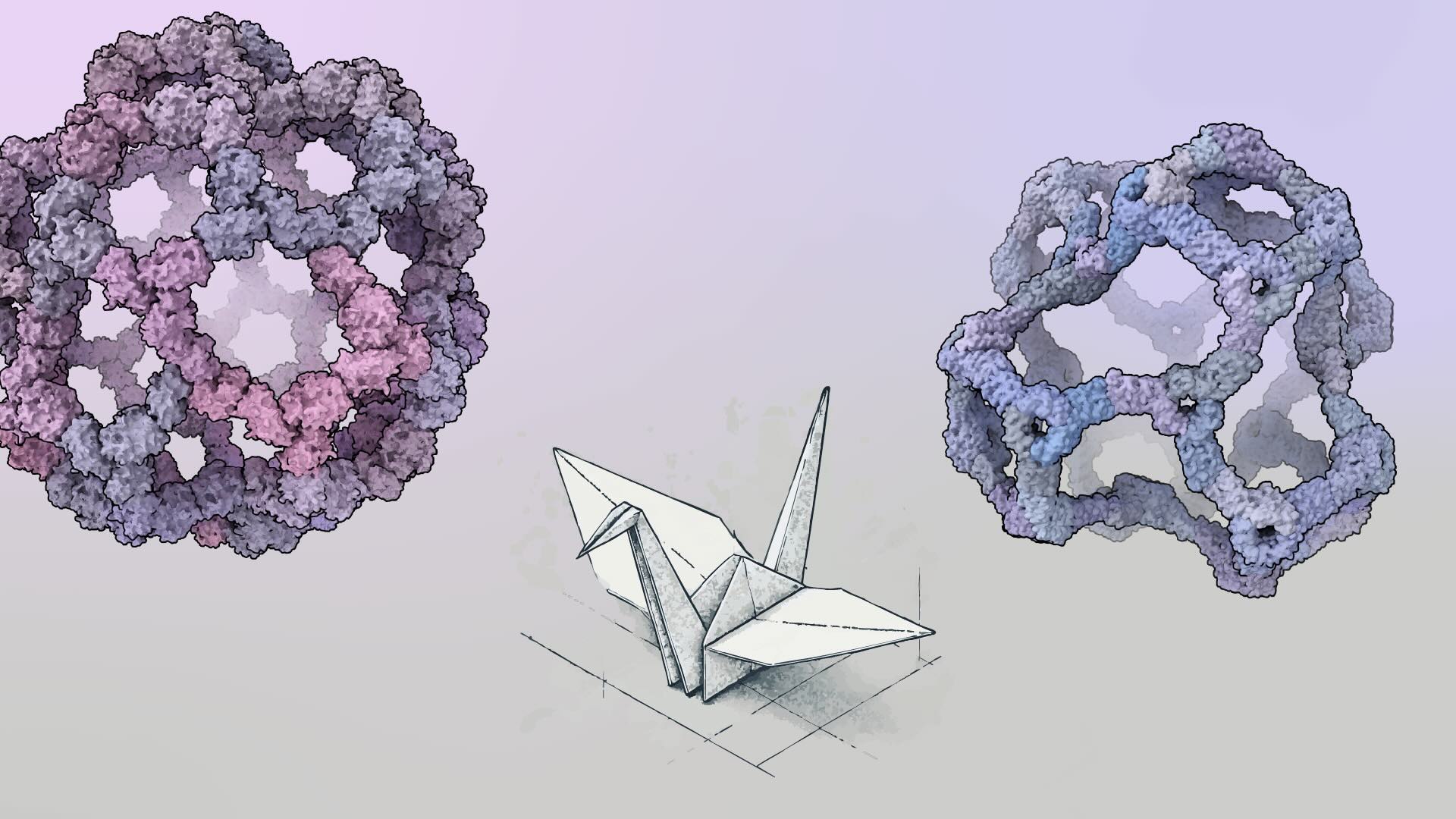Washington Research Foundation (WRF) has awarded a $387,050 phase 3 technology commercialization grant to a team led by Derrick Hicks, PhD, a Translational Acting Instructor at the UW Institute for Protein Design. WRF supported earlier work on this research with grants totaling $350,000 in 2022 and 2023.
Radiotherapies — using radiation to kill cancer cells in patients — are effective and important tools in our therapeutic arsenal against cancer. However, many existing radiotherapies unintentionally damage surrounding healthy cells. Radiolabeled antibodies, in which a radioactive atom is bound to an antibody designed to bind only with cancer cells, have helped increase the specificity of radiation exposure, but the large size of antibodies can prevent these therapeutics from penetrating the tumor microenvironment and reaching their targets. Furthermore, antibodies tend to circulate in the body for a long time, causing adverse effects in off-target regions when delivering toxic radiation.
Hicks and his colleagues are developing a cutting-edge technology to overcome these limitations by using minibinders: small proteins designed to bind targets with extremely high specificity. Previously, designing such proteins required extensive experimental work, making it prohibitively time-consuming and expensive. However, new machine-learning tools developed at the IPD have greatly expedited the process by reducing the number of protein candidates that researchers must test in order to identify the most suitable candidates. By attaching a radioactive atom to a minibinder designed to bind a specific type of cancer cell, Hicks and his team aim to create therapeutics that are small enough to penetrate the tumor microenvironment, specific enough to exclusively bind cancer cells, and able to be excreted over time in a nontoxic manner.
Hicks’ collaborators on this project include Gonçalo Bernardes, D.Phil., of the University of Cambridge in the U.K. and the Institute of Molecular Medicine in Lisbon, Portugal. Additionally, for the radiation-focused studies, Hicks and his team will partner with Bruno Oliveira, Ph.D., at Lisbon’s Center for Nuclear Sciences and Technologies.
The funding provided by WRF will support the development of these minibinder radio-conjugates for initial targeting of proteins that are highly expressed in tumors and help the tumors survive and spread. Hicks’s team will optimize their existing minibinder designs and assess the conjugates’ performance in both eliminating cancer and visualizing tumors using positron emission tomography (PET) imaging. PET imaging uses mildly radioactive tracers to create 3D images of areas of the body that accumulate the radiation, in this case the tumor. Researchers will evaluate whether the radiolabeled minibinders make their targeted cancers visible via PET imaging. If so, this new technology could function as both a therapeutic and a diagnostic tool.
“WRF’s gracious support enables us to advance minibinder-based radiotherapies, aiming to provide a new treatment option for cancer patients with high unmet medical needs,” Hicks said. “Our goal is to deliver targeted, effective therapies that spare healthy cells while addressing aggressive cancers.”
WRF’s director of grant programs, Meher Antia, Ph.D., said, “WRF has seen clear progress in this work to bring minibinder-based therapeutics to patients from our previous funding and we are delighted to continue our support for the team. We look forward to more exciting results to come in the future.”
Hicks expects to complete this project in approximately a year. He is considering spinning out a company from the IPD, which has an enviable track record of creating startups, to support further development of this promising new technology and move it closer to the clinic.
About the Washington Research Foundation
Washington Research Foundation and WRF Capital support groundbreaking research and early stage companies through grants and investments, with a focus on life sciences and enabling technologies. | wrfseattle.org




